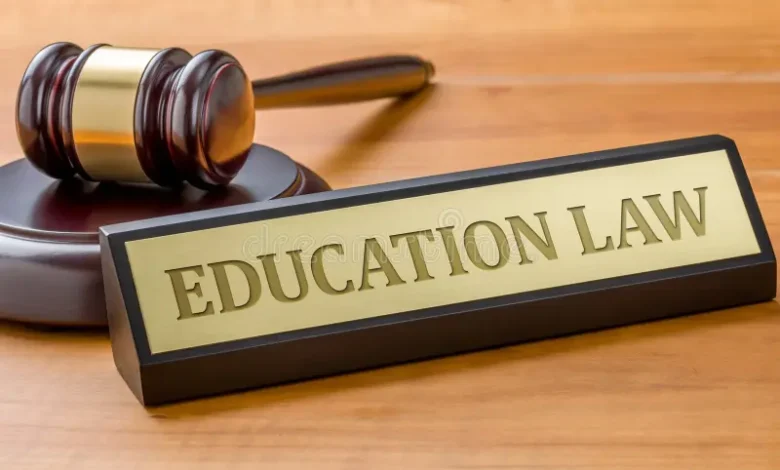The Legal Lifeline of Nigerian Schools: What Every Administrator Must Know About Compliance
From primary classrooms to university lecture halls, discover the hidden legal rules shaping Nigeria’s education system and why schools that ignore them risk closure.

Introduction
Running an educational institution in Nigeria is far more than teaching and managing students; it’s about staying on the right side of the law. From early childhood centres and primary schools to secondary and tertiary institutions, every school operates within a complex web of legal, regulatory, and compliance requirements. These rules safeguard institutional integrity, academic quality, financial transparency, and the welfare of students and staff.
In this article, we unpack the regulators, laws, licensing procedures, compliance obligations, and penalties that govern Nigerian schools plus practical recommendations for administrators who want to avoid sanctions and build lasting credibility.
Key Regulators and the Legal Framework You Can’t Ignore
When it comes to compliance, several agencies play a watchdog role in Nigerian education. Here are the big players:
- Federal Ministry of Education (FME): Oversees policy harmonisation and supervises federal institutions.
- State Ministries of Education: Control pre-tertiary schools within their states, handling approvals, inspections, and standards.
- National Universities Commission (NUC): Regulates universities, accredits courses, and licenses new ones.
- Universal Basic Education Commission (UBEC): Implements nationwide basic education policy under the UBE Act.
- State Universal Basic Education Boards (SUBEB): Manage infrastructure and teachers for basic education at state level.
- National Board for Technical Education (NBTE): Supervises technical/vocational schools and polytechnics.
- Teachers Registration Council of Nigeria (TRCN): Regulates and certifies teachers across all levels.
Primary Schools: Building the Legal Foundation
Primary education is the foundation of Nigeria’s academic system, but running a school here requires strict adherence to the law.
Licensing and Oversight
- Schools must first register with the Corporate Affairs Commission (CAC) as a legal entity.
- Approval from the State Ministry of Education is mandatory, requiring building plans, staff details, and curriculum outlines.
- Schools undergo rigorous inspections before full approval is granted.
Curriculum & Teacher Requirements
- Must follow the national curriculum (NERDC) with subjects like English, Maths, Science, Social Studies, and Civic Education.
- Teachers must be TRCN certified.
Tax & Legal Obligations
- Non-profit schools enjoy income tax exemptions (CITA Section 23(1)(c)).
- Still required: PAYE, VAT, and WHT deductions where applicable.
Safety & Data Protection
- Schools must provide clean water, sanitation, fire safety measures, and medical care facilities.
- With the Data Protection Act (2023), schools must safeguard student/staff records, seek consent, and may need a Data Protection Officer (DPO).
Penalty for Non-Compliance: Closure, fines, revoked approvals, or reputational damage.
Secondary Schools: Walking the Tightrope of Compliance
Secondary schools face even tougher oversight.
- Licensing: Approval from State Ministries of Education, plus eligibility for WAEC/NECO accreditation.
- Curriculum: Follow the Senior Secondary Curriculum (NERDC) with electives and entrepreneurship subjects.
- Staffing: Teachers must hold at least a Bachelor’s in Education or PG teaching certificate + TRCN registration.
- Labour Compliance: Schools must pay staff in line with the National Minimum Wage Act, and remit Pensions & NHF contributions.
Safety and Student Welfare
- Must provide sick bays, fire safety equipment, safe water, fencing, and anti-bullying policies.
Data Compliance
- With the NDPR 2019, schools must register with NDPC if handling large-scale data, obtain consent, and protect student records.
Annual Reports & Monitoring: Schools must submit yearly records on enrolment, staff, budgets, and infrastructure upgrades—or risk sanctions, de-accreditation, or closure.
Tertiary Institutions: Heavyweights Under the Microscope
Universities, polytechnics, and colleges of education are under rigorous multi-layered regulation.
Who Regulates What?
- NUC: Universities
- NBTE: Polytechnics
- NCCE: Colleges of Education
Licensing & Accreditation
- Private institutions must register with CAC, secure licenses from the regulator (e.g., NUC), and pass facility, staffing, and curriculum assessments.
Staffing & Labour Rules
- Lecturers must hold postgraduate qualifications.
- Institutions must comply with minimum wage laws, pensions, NHF, and NHIS enrolment.
Tax & Reporting Duties
- Private tertiary institutions must remit CIT, VAT, PAYE, WHT, and the Tertiary Education Tax (2.5%).
- Annual Reports: Institutions submit updates on academic performance, finances, research output, and demographics.
Sanctions for Default: Loss of accreditation, suspension of programmes, blacklisting of degrees, or withdrawal of government funding.
The ₦70,000 Minimum Wage Rule (2024 Update)
The new ₦70,000 national minimum wage applies across public educational institutions. Private institutions with 25+ staff must comply too. Failure to do so could trigger labour disputes, fines, or litigation.
Compliance Practices Every School Must Master
Regardless of whether you run a nursery, a secondary school, or a university, these compliance pillars are universal:
- Licensing & Accreditation: Renew approvals regularly and remain audit-ready.
- Employment Standards: Pay fair wages, remit pensions, and avoid hiring unqualified staff.
- Tax Compliance: Even nonprofits must meet PAYE, WHT, and VAT obligations.
- Health & Safety: Maintain sanitation, fire safety, fencing, and first aid readiness.
- Data Privacy: Protect personal data with policies, consent forms, and DPO oversight.
- Accountability: Submit annual reports, keep accurate records, and cooperate with inspections.
Conclusion
Compliance is the heartbeat of Nigeria’s educational sector. Whether at the primary, secondary, or tertiary level, schools must not only teach—they must uphold the law, protect stakeholders, and preserve institutional credibility.
For administrators, the message is simple: stay proactive, stay compliant, and stay ahead. Invest in legal guidance, embrace compliance systems, and train your staff. In today’s fast-changing educational landscape, compliance is not just a requirement; it’s a survival strategy.
Ignorantia Juris Non Excusat
(Ignorance of the law is not an excuse)





